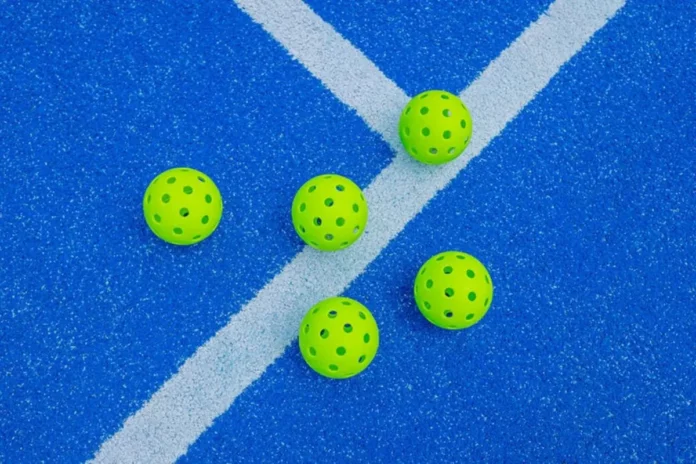New Line Calling Rules in Pickleball Tournaments have been established to enhance clarity and fairness during matches. These guidelines focus on the responsibilities of players in making accurate calls and ensuring an equitable playing environment.
Player Responsibilities
Under the new regulations, pickleball players are tasked with calling the lines on their side of the court, except for short serves and non-volley zone faults when a referee is present. If a player makes an initial line call and later seeks a second opinion from their opponent or a referee, the clear call will take precedence. If no clear decision can be made, the player’s initial call stands. In matches where line judges are available, players will only call the centerline during pickleball serves.
Benefit of the Doubt
An important aspect of the new rules is that the opponent will always receive the benefit of the doubt on line calls. Any ball that cannot be definitively called “out” will be deemed “in.” Players cannot request a replay if they did not see the ball clearly land. If a player opts not to make a call, they may appeal to the referee for a ruling. If the referee cannot determine the outcome, the ball is considered “in.”
Players are prohibited from consulting spectators regarding line calls. However, they may ask their opponents for assistance in making calls on their side. If the opponent cannot provide a clear determination, the ball will be ruled “in.” Once a player requests their opponent’s opinion, they lose the right to make any further calls for that rally.
Signaling and Communication
Players must promptly signal “out” calls through voice or hand gestures. If a ball is returned, the “out” call should be made before the opponent has a chance to hit it. If a player does not return the ball, they can either call it “out” or defer to their opponents until the next serve.
In doubles play, if one player calls the ball “out” while their partner calls it “in,” the team’s call will be ruled “in.” Players retain the right to appeal any call to the referee until the next serve occurs. If neither the referee nor the opponent witnessed the ball’s landing, it will be considered “in.”
When a player yells “out” or other similar phrases while the ball is in the air, it is viewed as communication, not a formal line call. An “out” call made after the ball bounces will stop play, and if the referee overrules the call, it will result in a fault against the player who called it. In matches with line judges, they will be responsible for all line calls.
These new guidelines aim to improve the clarity and fairness of pickleball tournaments. By clearly outlining the responsibilities of players and officials, the changes seek to enhance the overall experience and maintain the integrity of the sport.
News in Brief: New Line Calling Rules in Pickleball
New line-calling rules in pickleball have been introduced to clarify player responsibilities during matches. Players are now expected to make accurate calls while ensuring fairness by giving opponents the benefit of the doubt. The guidelines aim to enhance the integrity of the sport as it continues to grow.
ALSO READ: Snowball Smash Pickleball Tournament: A Pickleball Celebration in Ponte Vedra Beach

